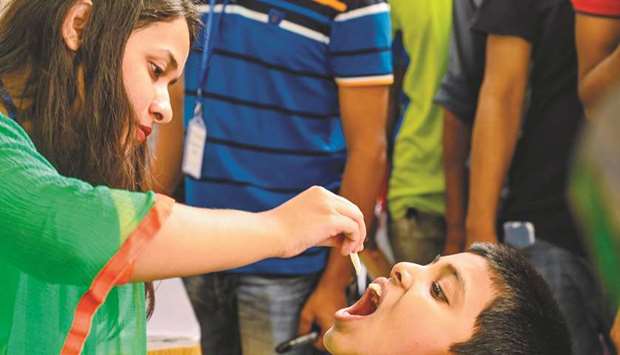Bangladesh yesterday kicked off a drive to vaccinate more than a million people against cholera, which infects tens of thousands a year, as part of an international campaign to eliminate transmission by 2030.
The delta nation has sought to reduce the impact of the disease - which causes acute diarrhoea and spreads through contaminated food and water - through vaccines and by setting up a dedicated treatment hospital.
“We have brought down the mortality rate in cholera to almost zero in Bangladesh,” said senior scientist Firdausi Qadri at the Dhaka-based International Centre for Diarrhoeal Disease Research.
But she admitted that the number of infections was still very high.
According to the World Health Organisation, cholera infects about 1.3-5mn people every year, and kills an estimated 21,000-143,000.
Bangladesh has an estimated 100,000 cases a year, according to authorities, but plans to immunise half its 168mn people in the next decade.
Daisy Akter, who lost two sisters and a brother to cholera in the 1970s, was one of the first recipients of the oral vaccine at a Dhaka neighbourhood yesterday.
“No villager came to offer funeral prayers for them fearing they might get the disease,” she said.
“We had to bury them in the front yard of our home.”
UN agencies and Bangladesh authorities have already carried out a massive cholera vaccination drive in the country’s southeast, where nearly one million Rohingya refugees have lived in overcrowded camps since 2017.
Some 800,000 Rohingya and 600,000 locals were vaccinated in that campaign.

A child receives an oral cholera vaccine from a health worker during a vaccination campaign in Dhaka yesterday.
